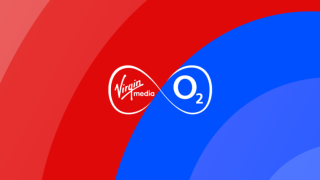One of the biggest cases the two companies have in its favour for the merger is that the deal is pivotal to Sprint’s survival, given its debt of $40 billion.
However, US District Judge Victor Marrero, who is overseeing the case brought by numerous attorneys general, questioned T-Mobile's CEO John Legere on why Sprint is not capable of returning the ailing company back to its former glory all by itself, referencing the fact that T-Mobile was in a similar situation back in 2012.
“If T-Mobile was able to achieve this enormous upheaval and overhaul, why not Sprint, without the merger?” Marrero asked.
Taking the stand first, Legere said that “the AWS spectrum that was given, the cash that was given, the availability of MetroPCS, and the scale that came with it, and the network that came with it, and the financial situation that T-Mobile was in was dire, but nothing compared to the distress that Sprint is in at this point in time,” he explained. “I think Sprint also does not have the financial backing or the support of their shareholders to move further with the investments that were required, which would be gigantic.”
Prior to this, he also commented “it's certainly my opinion that except for this transaction, Sprint would probably be sold for parts,” he said.
Taking the stand a few days later, former Sprint CEO Marcelo Claure gave a slightly different perspective, hinting that Sprint could survive but it would be difficult.
Speaking on whether or not Sprint would be ‘sold for parts’ Claure said, “those are possibilities. I don’t necessarily agree completely.”
“Sprint two years from now would be a very different from Sprint today, because we would cease to be a national competitor,” continued Claure. He also said the company would probably have to borrow money and raise prices.
For the defence, the states of the attorneys general presented an email which showed that parent company Softbank, is willing to pay Sprint’s $40 billion debt if required.
“If we need to pay back most or all of bonds, I’m willing to pay back all of those,” wrote Masayoshi Son, founder and CEO of Softbank to Claure back in 2017.
Its been a long road in a tumultuous and divisive merger between T-Mobile and Sprint. Starting back in April 2018, the two companies claimed that the deal would ‘advance DT’s position in sales to just behind Verizon, with €102 billion of pro forma sales’ in addition to helping with the roll out of 5G.
Since then, the pair have had a number of obstacles thrown their way. In its attempts to try and convince the Federal Communications Commission (FCC), Sprint admitted that it suffers from network shortcomings and is failing to attract new subscribers. It also sought approval from the US Department of Justice (DoJ), which questioned how the deal would affect prices for mobile virtual network operators (MVNOs).
It wasn’t until December 2018, that the deal finally started to make head way with the first set of government bodies giving its approval, the Committee on Foreign Investment in the United States (CFIUS), the DoJ, the Department of Homeland Security and the Department of Defense submitted a filing with the FCC stating they had no objects to the deal but only after both Deutsche Telekom and SoftBank agreed to remove Huawei network equipment from their systems in Europe and Japan, over growing security concerns of having Chinese systems in their parent companies. This was after a formal lobby by Mike Rogers, a Republican politician who was in the House of Representatives until 2015 and his lobby group, Protect America’s Wireless, was launched in November 2018.
One of the terms of this approval is that Sprint and T-Mobile US must help create a new mobile company with its own infrastructure. As such Sprint agreed to sell its Boost Mobile subsidiary, with wireless spectrum in order to facilitate this.
Satellite company Dish reportedly bid $6 billion for Sprint’s Boost and the wireless spectrum back in June. Since then, Dish indicated that it may join forces with Google if the deal goes through order to create this new fourth mobile network. In the end, the deal was agreed to Boost, spectrum and Virgin Mobile USA to Dish for $5 billion earlier this year.
As for the FCC, it gave the green light once the two companies agreed to build a new 5G under the newly formed company that would cover 97% of the US population within three years, including 85% of the rural population. And it would cover 99% of the US population within six years and 90% of the rural population.
It officially gave its consent in August 2019, once the Dish deal had been confirmed, however, Letitia James, attorney general of New York state, and Xavier Becerra, the law chief of California, joined with eight other state attorneys general in saying that a merger would “cause irreparable harm” to US consumers. Additionally, the approvals process by the FCC has also been called into question by the attorneys general.
The other eight were attorneys general for Colorado, Connecticut, Maryland, Michigan, Mississippi, Virginia and Wisconsin, plus the District of Columbia. Since then other states have joined the case.
The current court case is expected to end sometime in early 2020, so watch this space!






